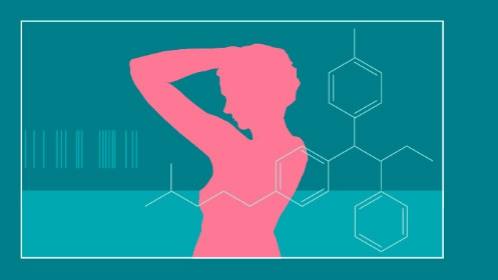-
Science Saturday: Breast Cancer risk score buoys preventive medication use

Summary: A study that may change practice shows personal risk scores can encourage women to accept treatment.
Studies show that the risk of breast cancer can be reduced by half through the use of a five-year course of tamoxifen or raloxifene and also by use of aromatase inhibitors. Nevertheless, women at high risk of breast cancer are reluctant to take preventive medicine.
New research could help change those attitudes.
Researchers from Mayo Clinic and collaborators at the University of Manitoba and Cancer Care Manitoba in Canada found that when women at high risk of developing breast cancer were presented with personalized genetic information, they were more likely to take preventive medications to reduce their chance of developing breast cancer. The researchers used a new blood test developed by Mayo Clinic to identify women at higher genetic risk of developing breast cancer.
Their findings were presented at the 2019 American Society of Clinical Oncology Annual Meeting in Chicago.
"Our hope is that when armed with this specific information, women at risk of breast cancer will make better-informed decisions and accept preventive therapy." - Dr. Sandhya Pruthi
"The practice-changing implication of our study is that by assessing the association between clinical risk factors and selected genetic risk factors, we can potentially provide a novel way to personalize risk and guide decision-making on the patient accepting preventive medications that have been shown to reduce the risk of developing breast cancer," said Dr. Sandhya Pruthi, a general internal medicine physician at Mayo Clinic in Rochester, Minnesota.
A breast cancer risk score is determined using a blood test that detects single nucleotide polymorphisms (SNPs), or what Dr. Pruthi describes as "spelling mistakes" in a patient's DNA.
"While individually these SNP risk factors are of little clinical value, when combined as a risk score, they yield a strong risk factor for breast cancer that can be used to personalize a patient's risk," she said.
The risk score increased the breast cancer risk estimates for 55.6% of study participants. After risk counseling, participants' intention to take preventive medications changed significantly, with 41.9% of those with higher risk scores more inclined to take medication.
"Our study demonstrated that among high-risk women, the polygenic risk score significantly changed the breast cancer estimates and the patient's intent to take preventive medicine," Dr. Pruthi noted.
"We are making significant progress toward preventing breast cancer by tailoring treatments to patients based on their unique genetic profiles," Dr. Pruthi said. "Our hope is that when armed with this specific information, women at risk of breast cancer will make better-informed decisions and accept preventive therapy."
News Release: Genetic information can encourage women to accept preventive cancer treatment
Read more about cancer research and treatment in Forefront.
______________________________________________
Other Mayo Clinic medical research websites:
- Research at Mayo Clinic
- Discovery’s Edge
- Advancing the Science
- Forefront
- Mayo Clinic Center for Individualized Medicine
- Center for Regenerative Medicine
- Center for the Science of Health Care Delivery







